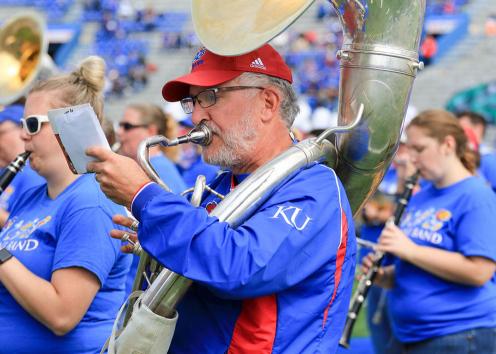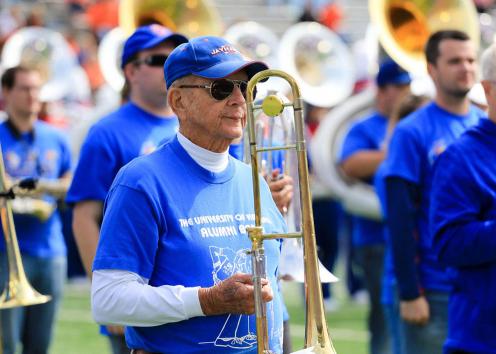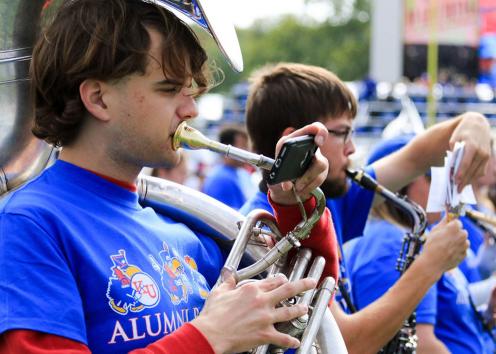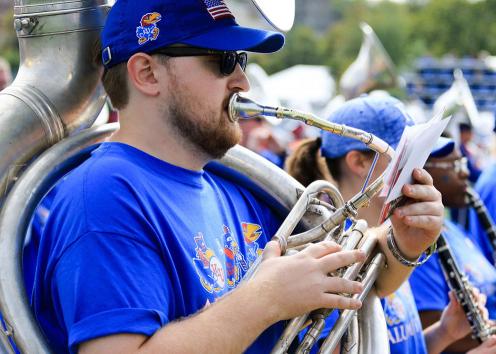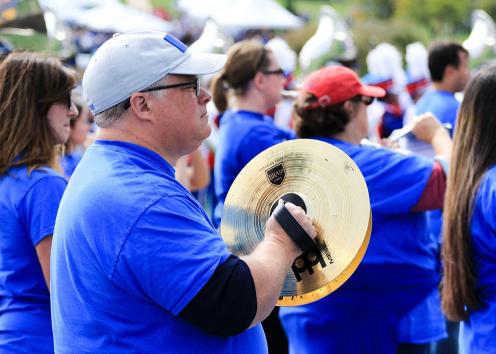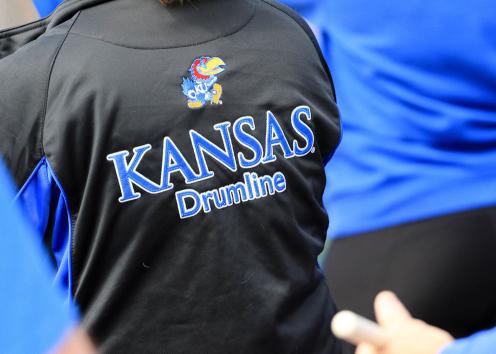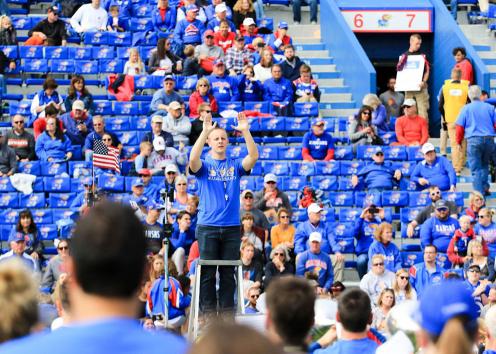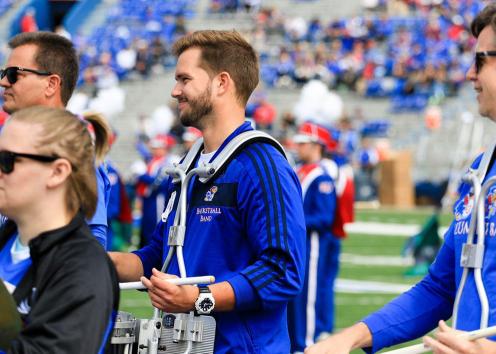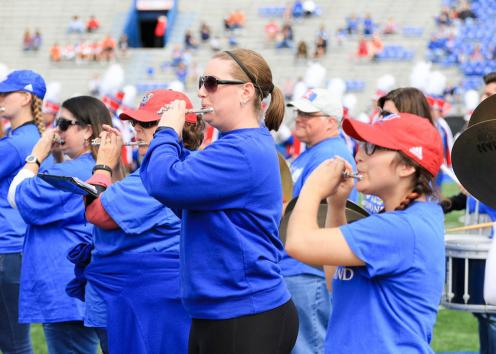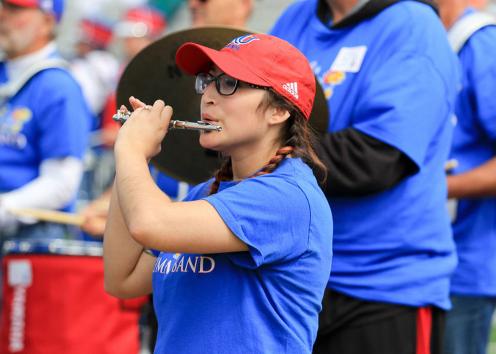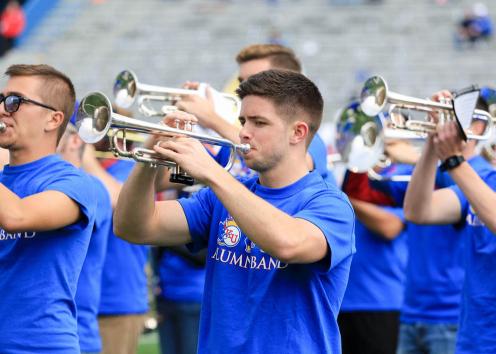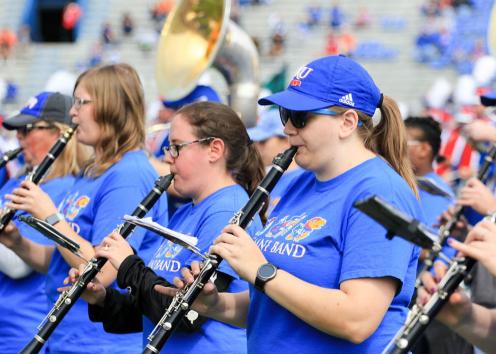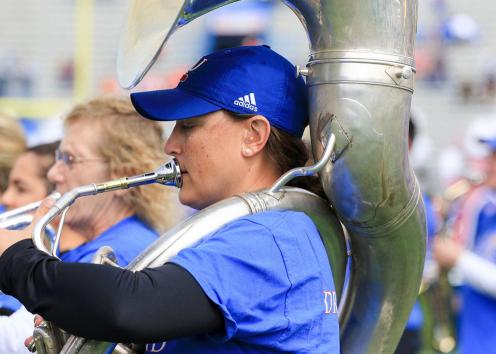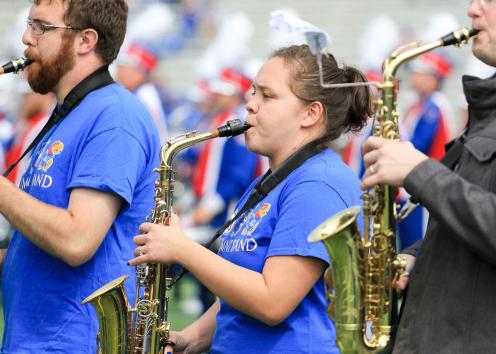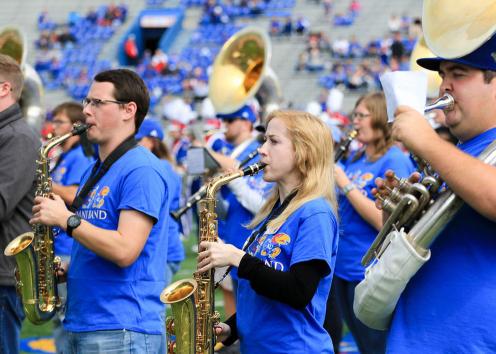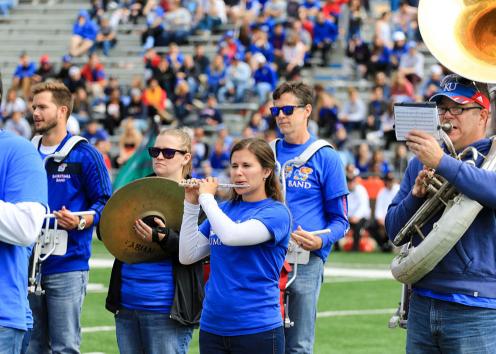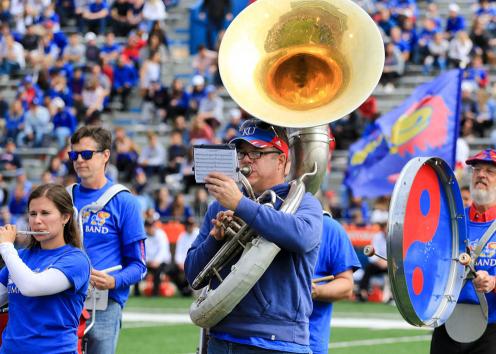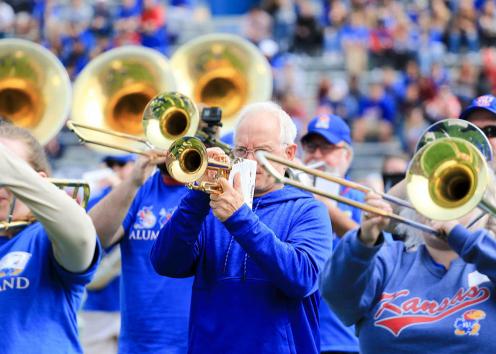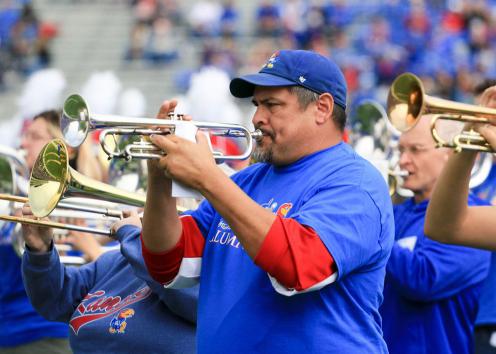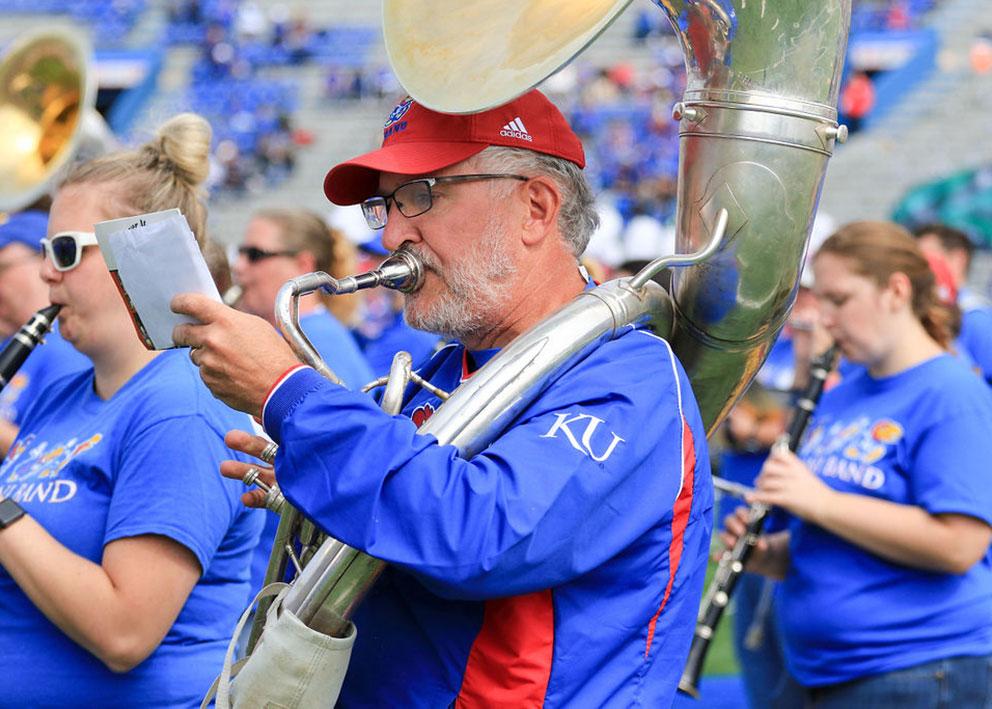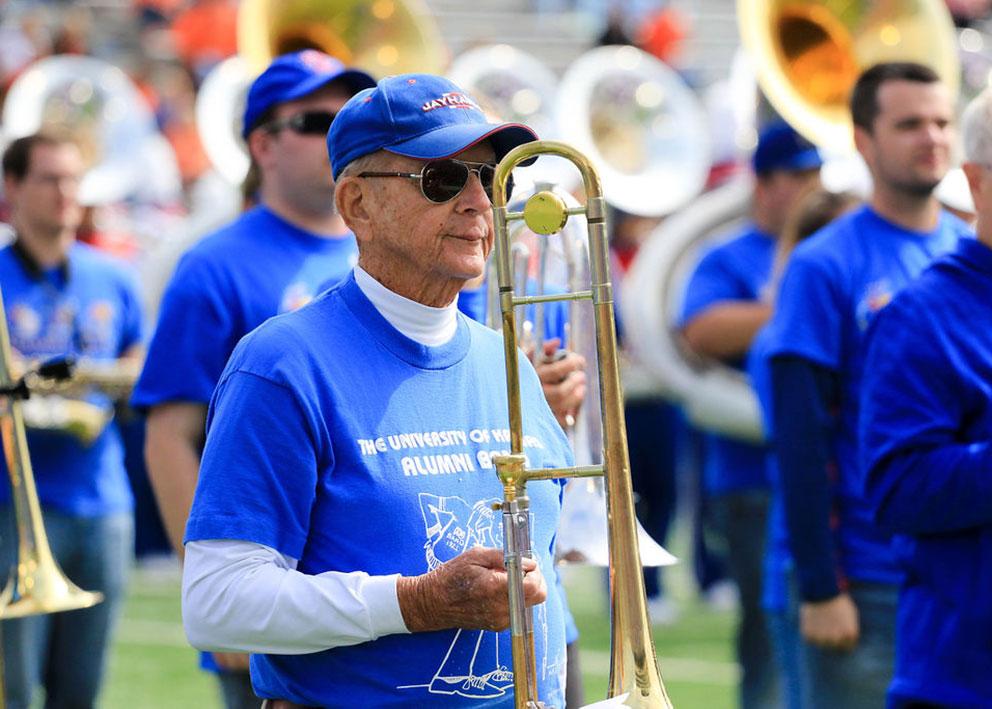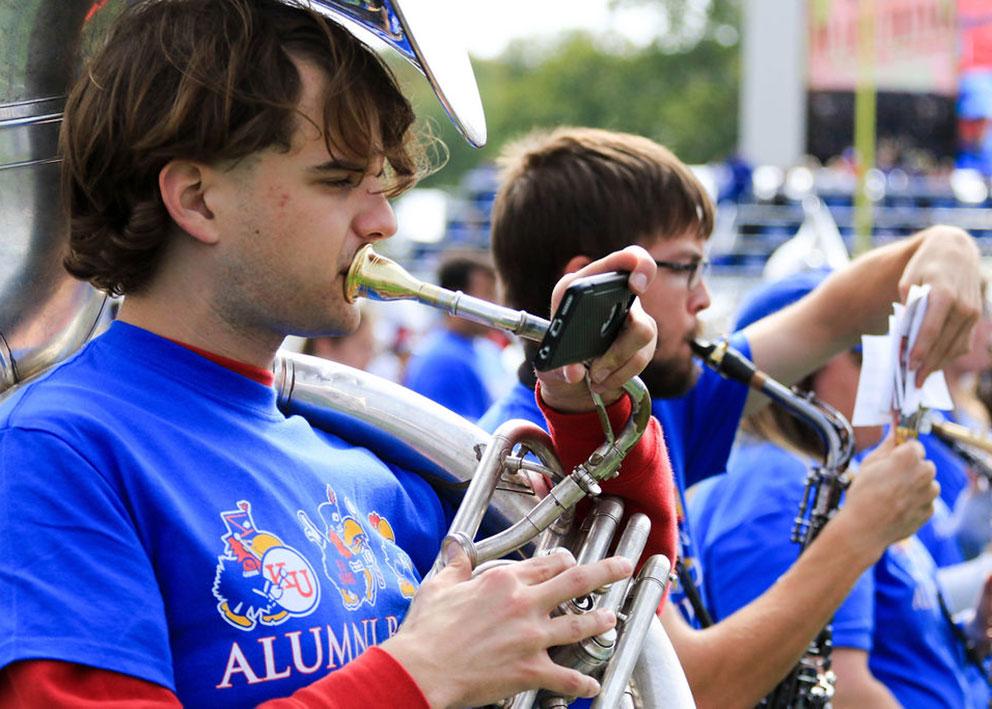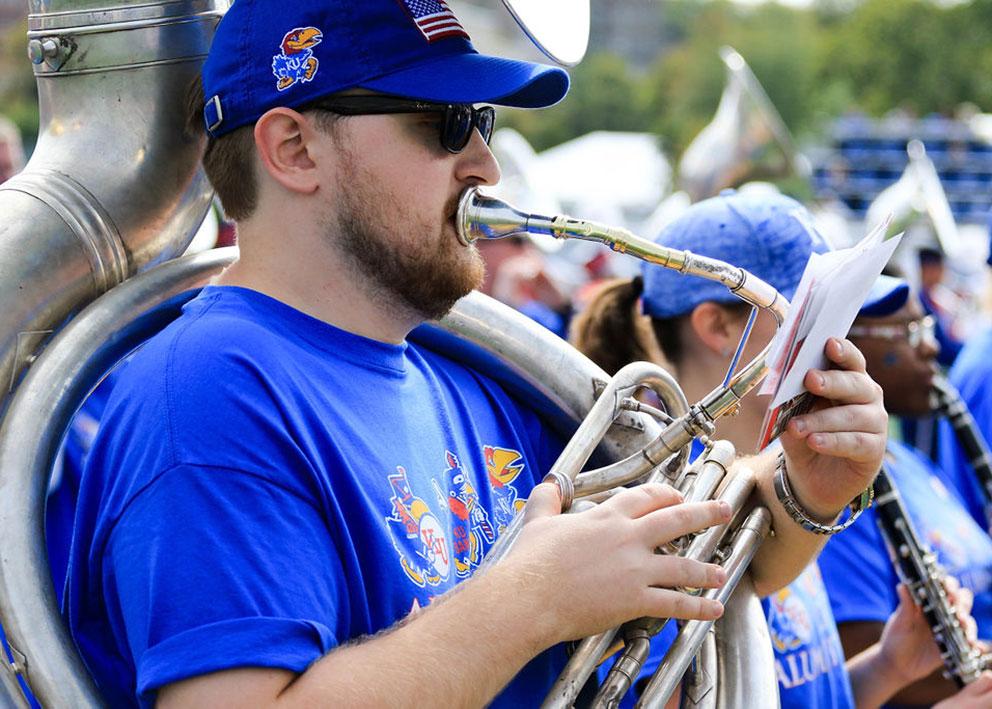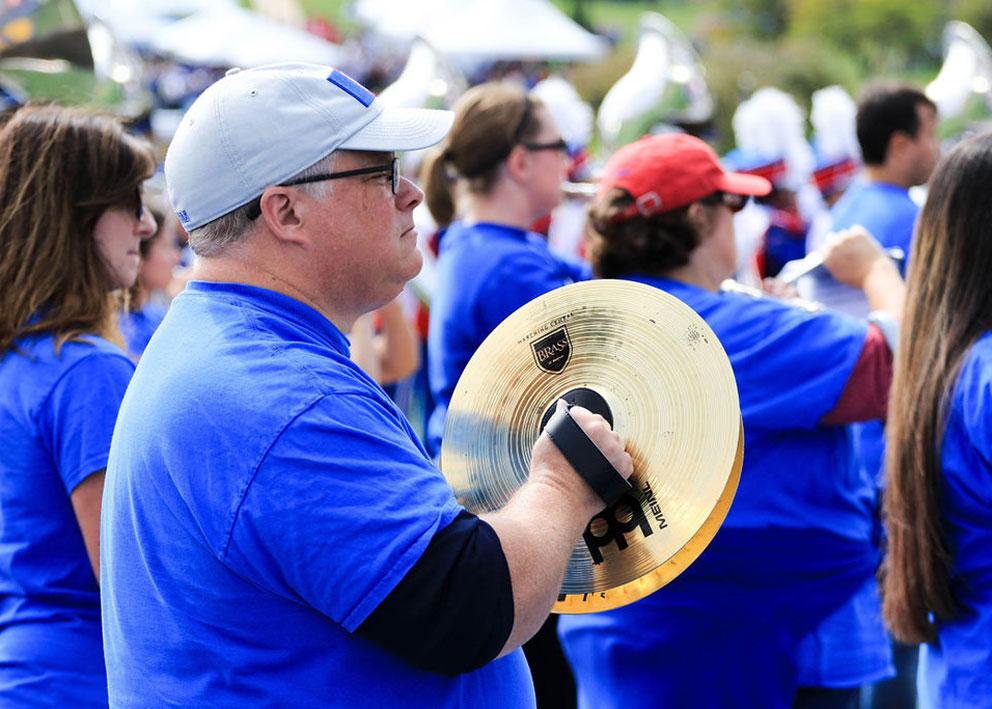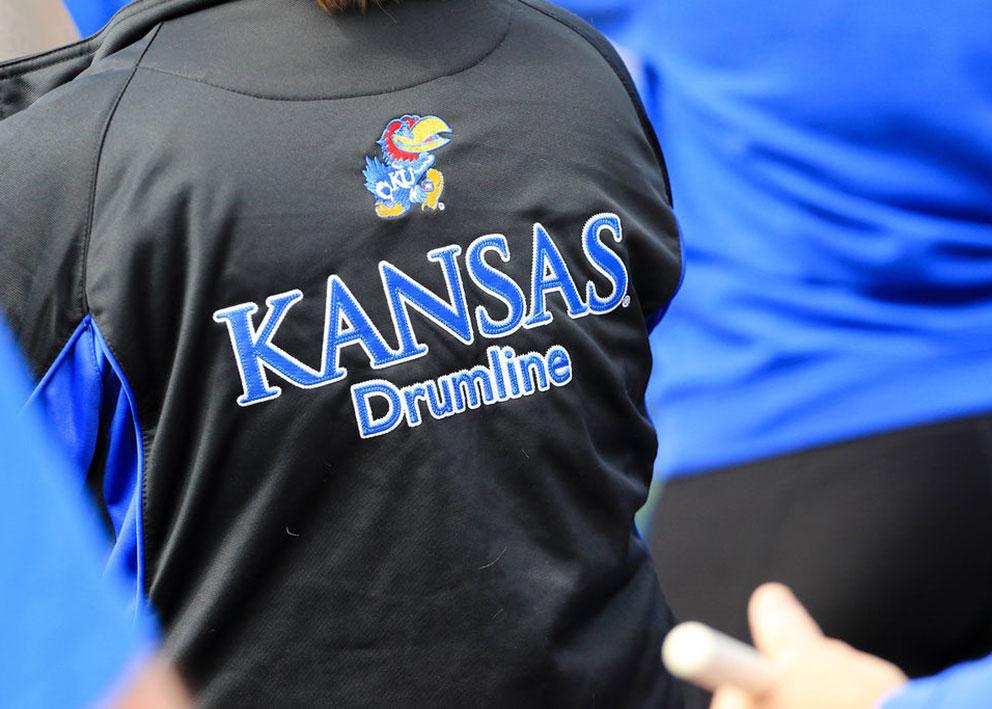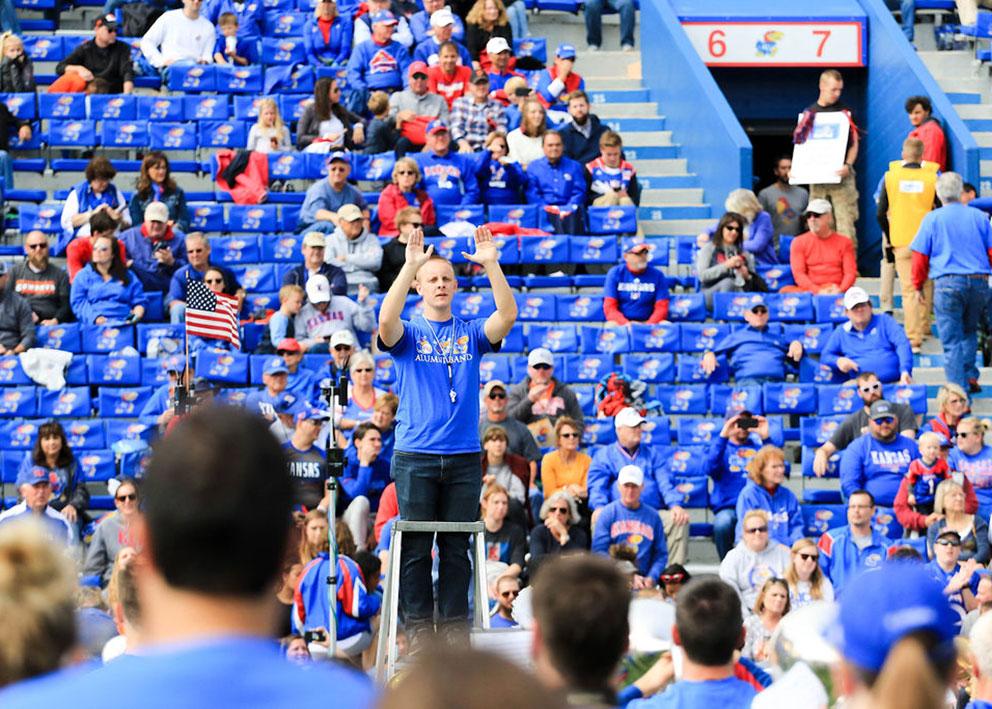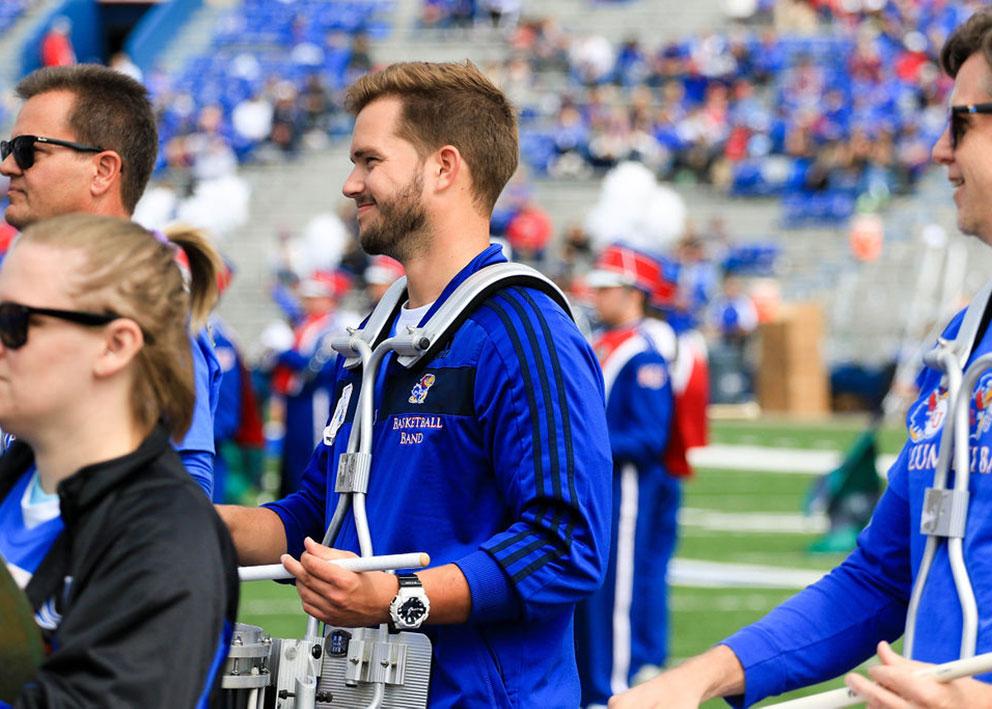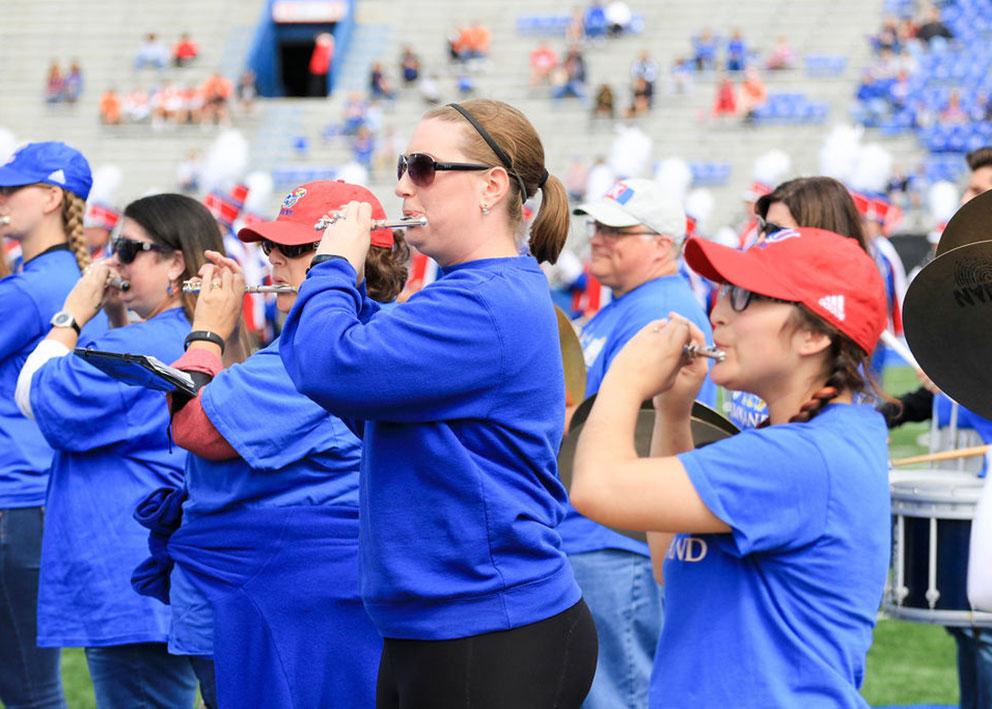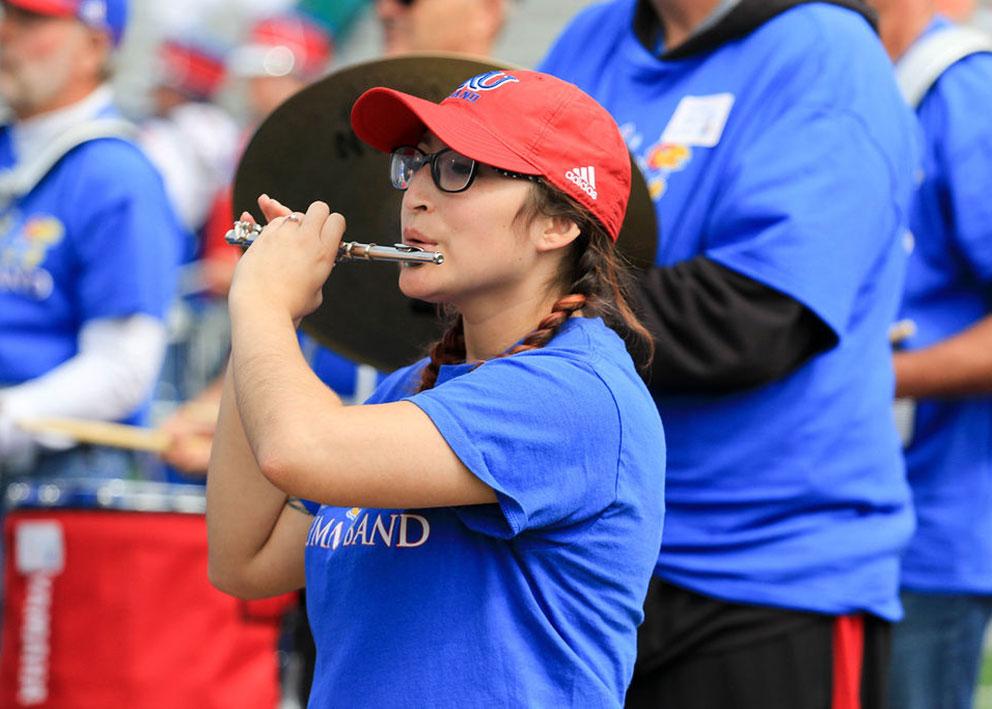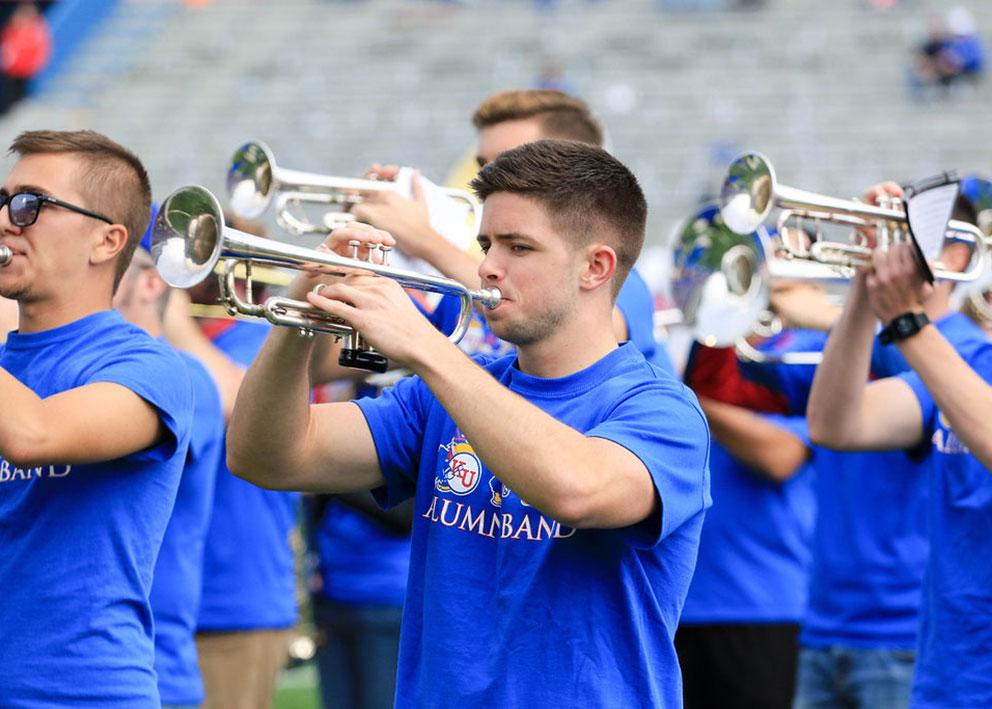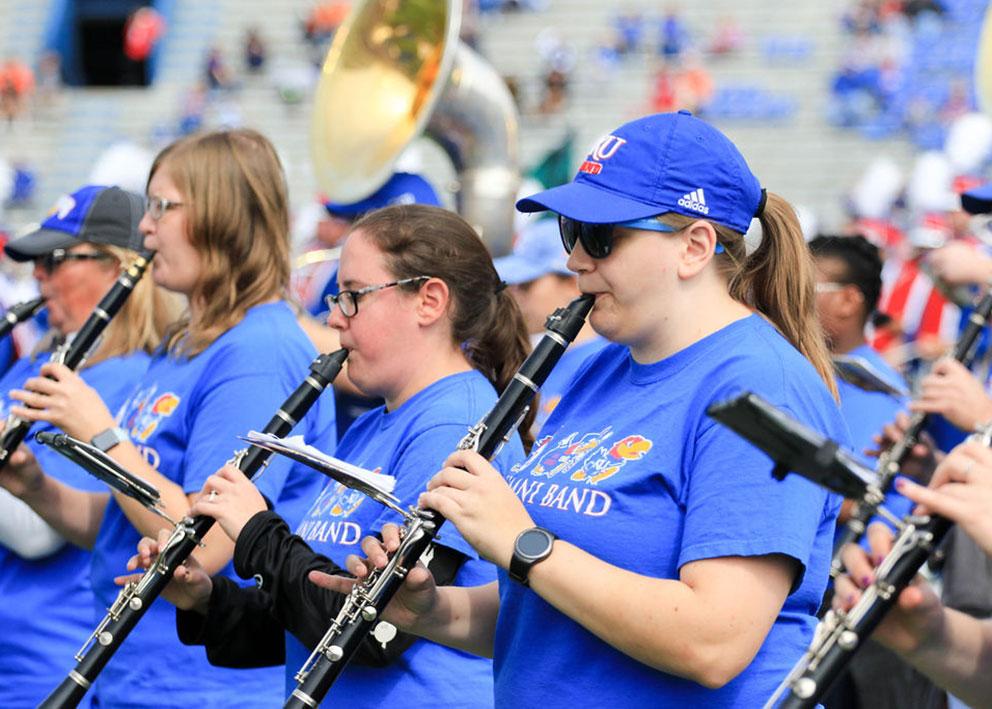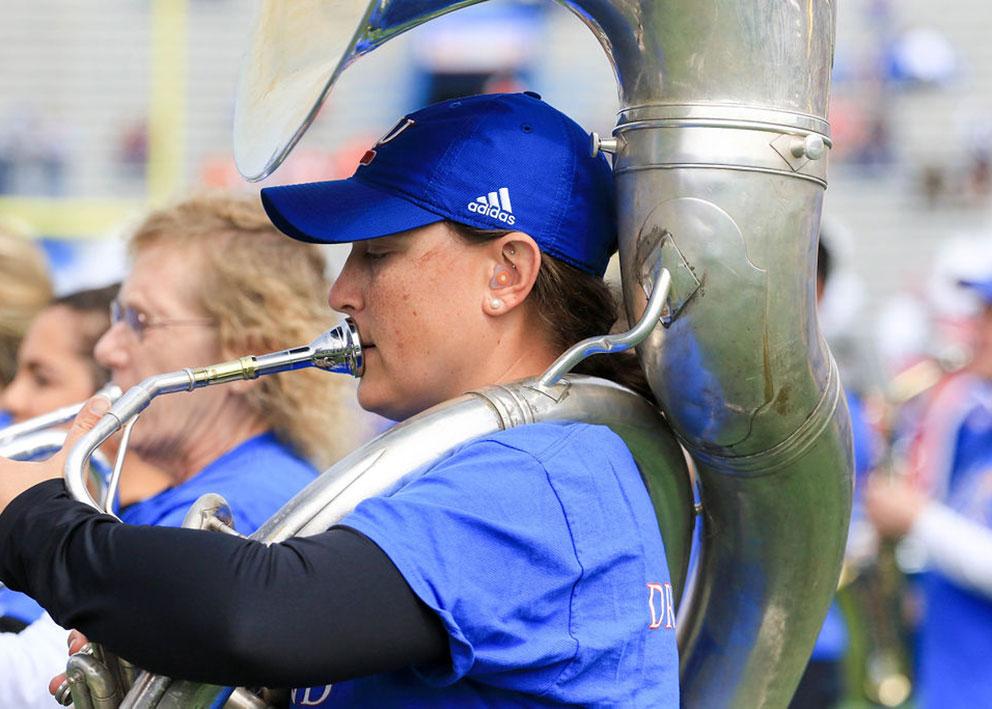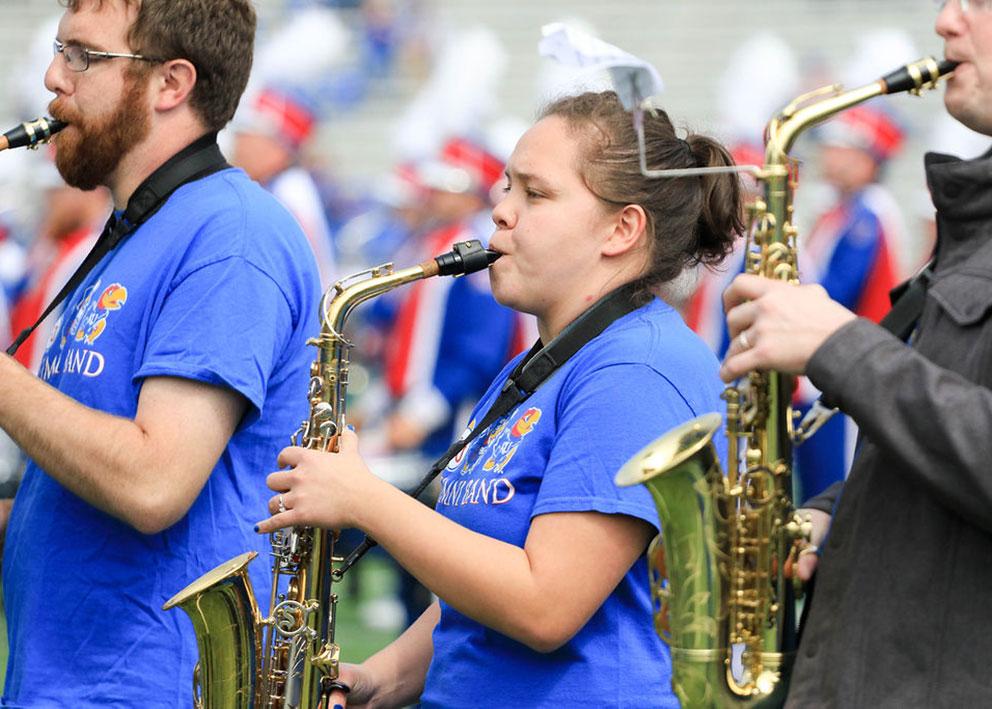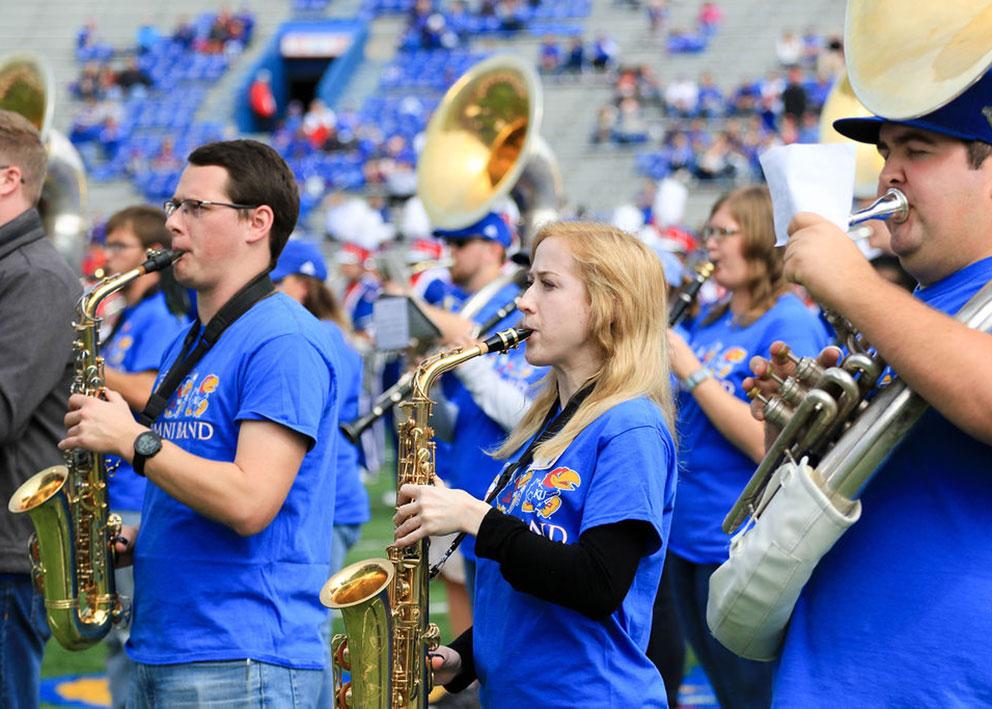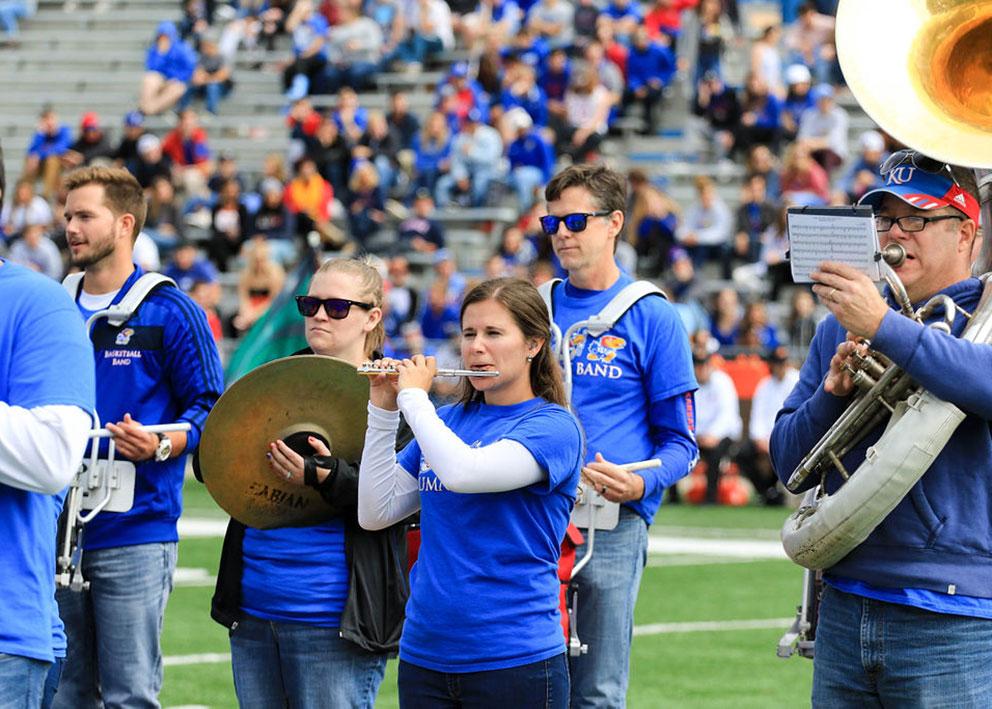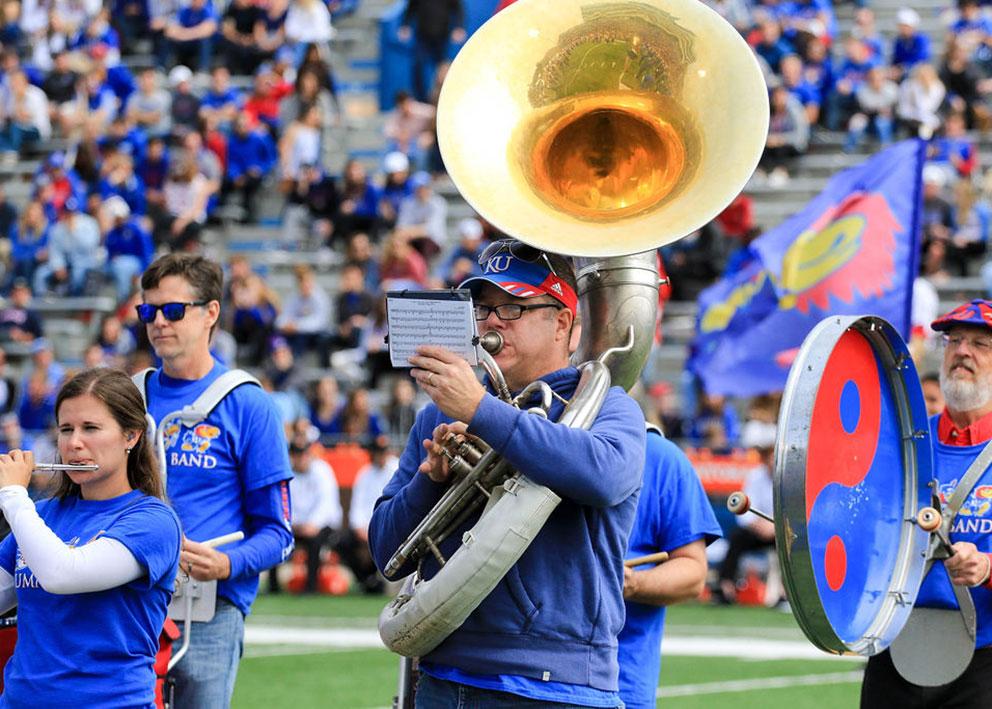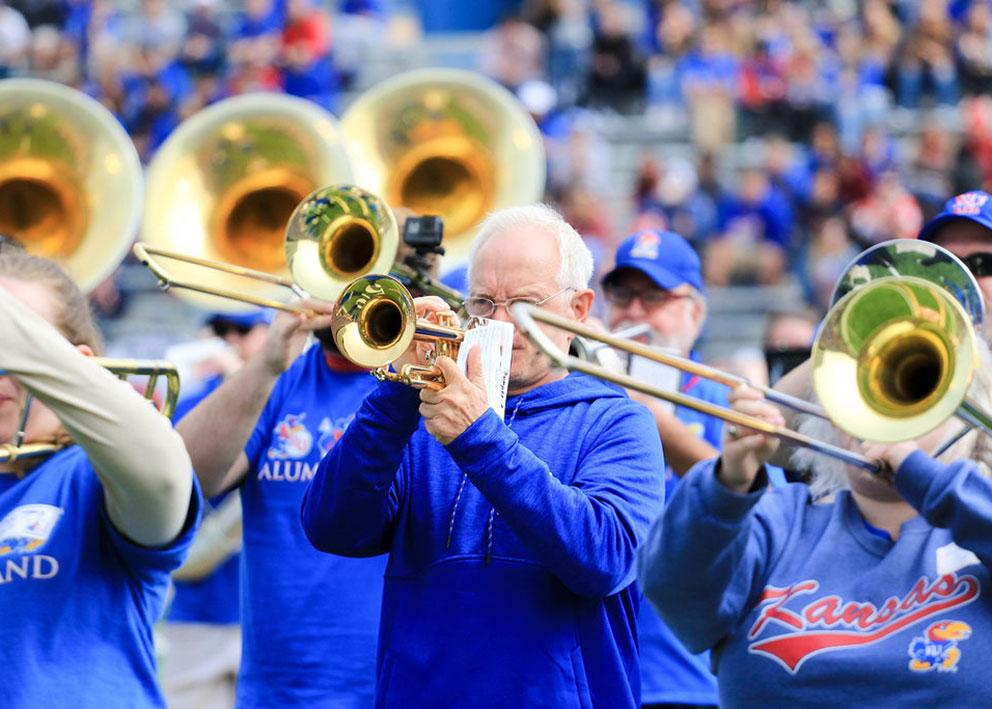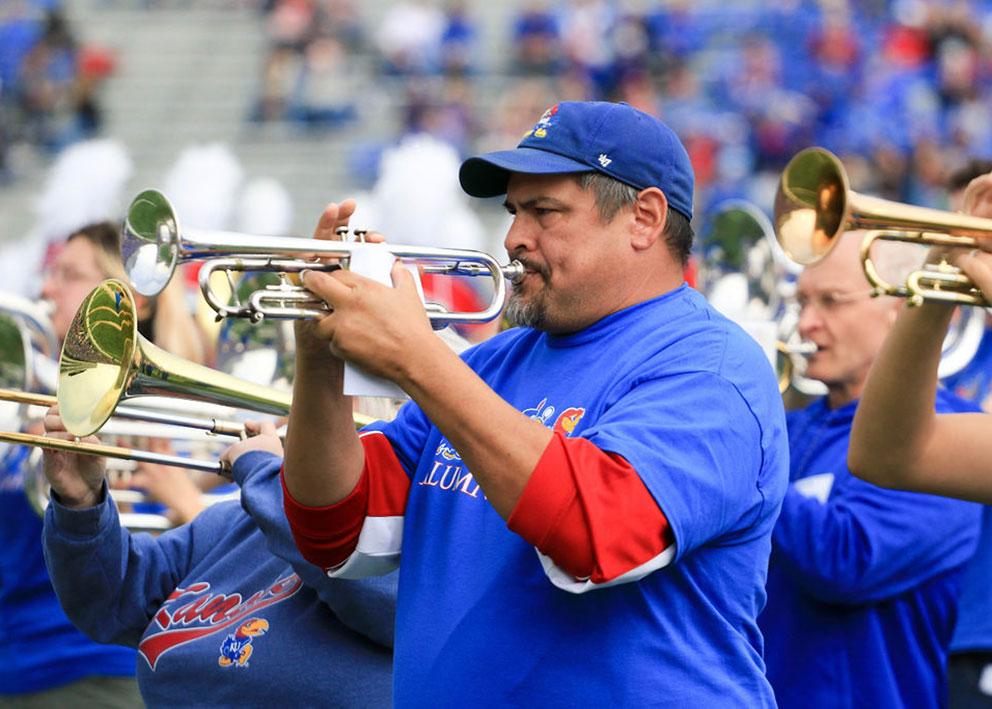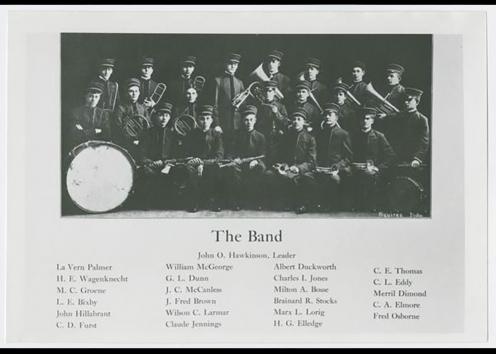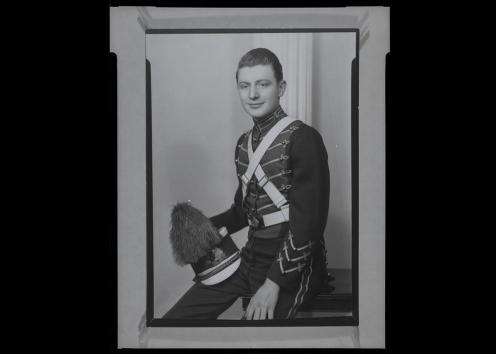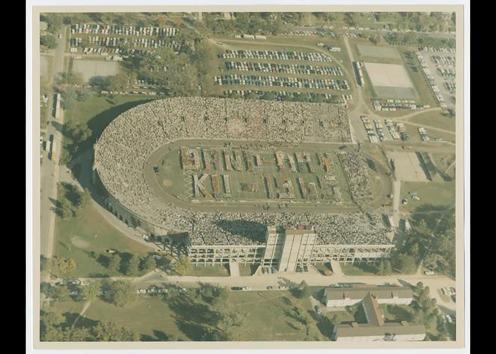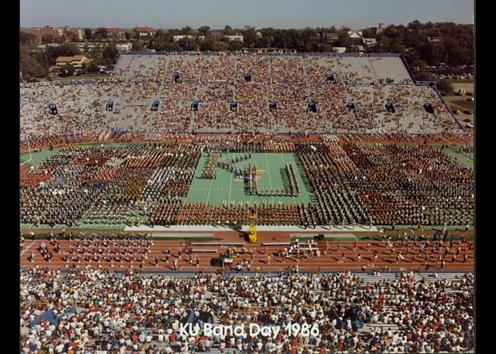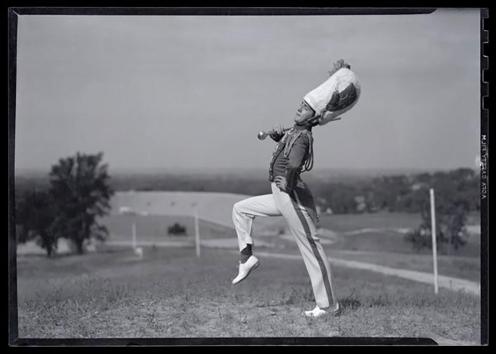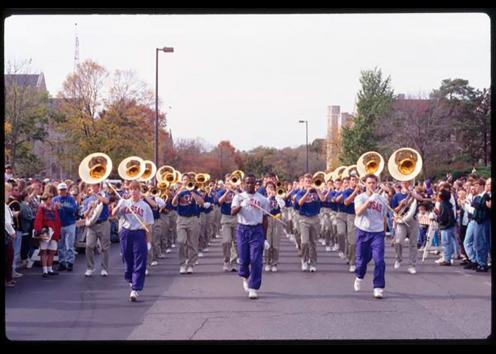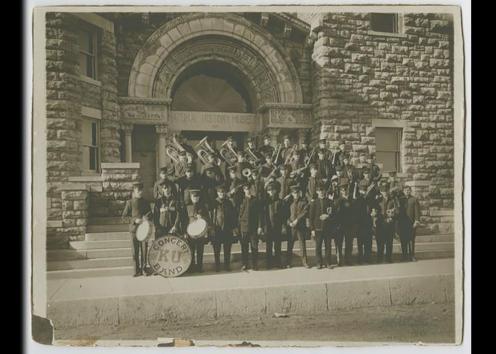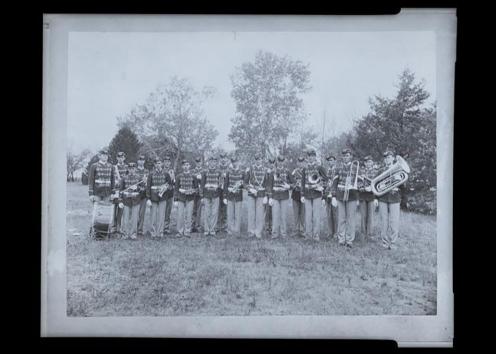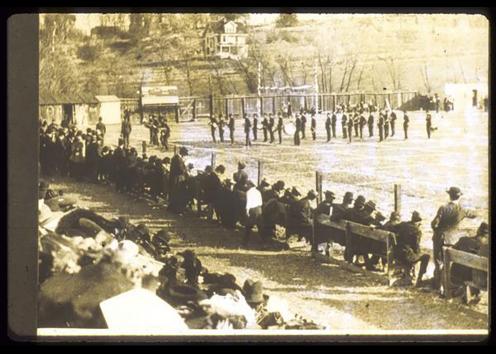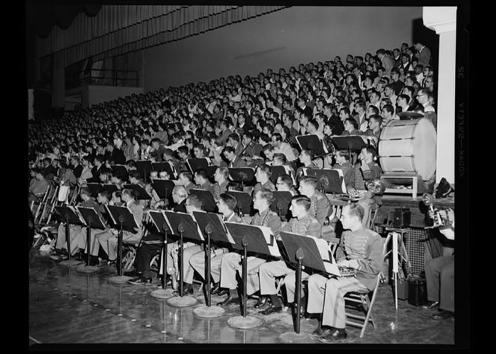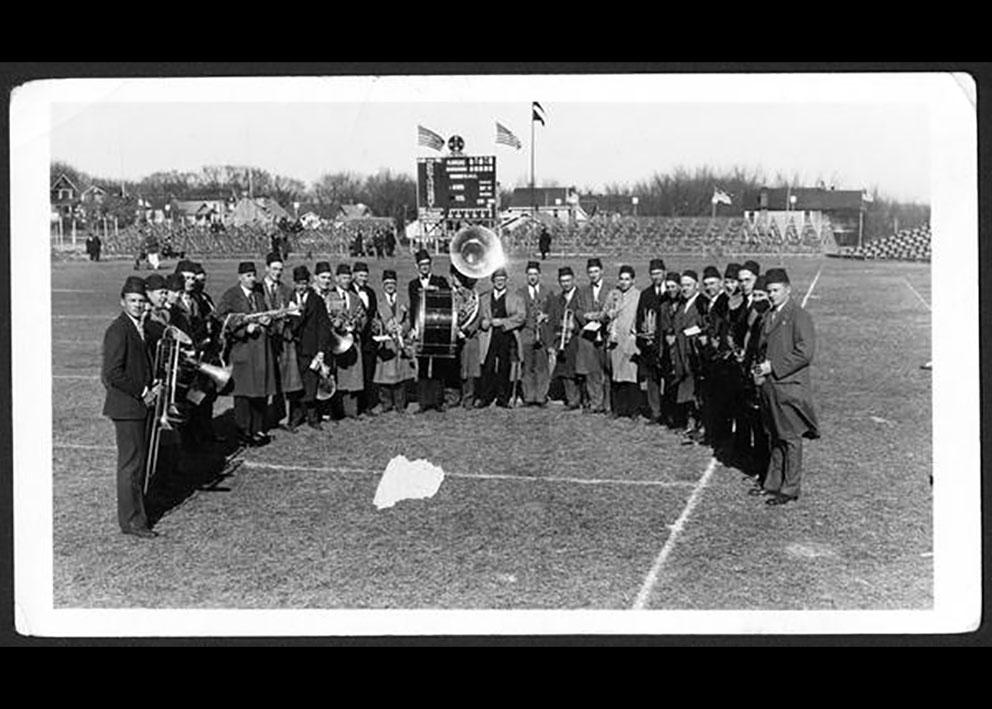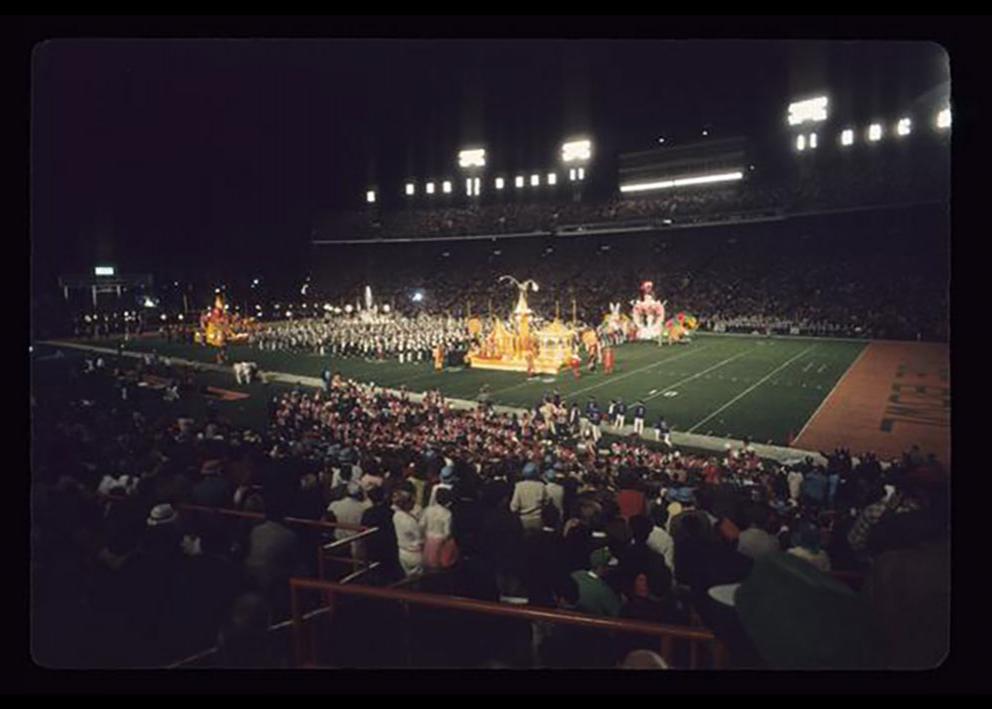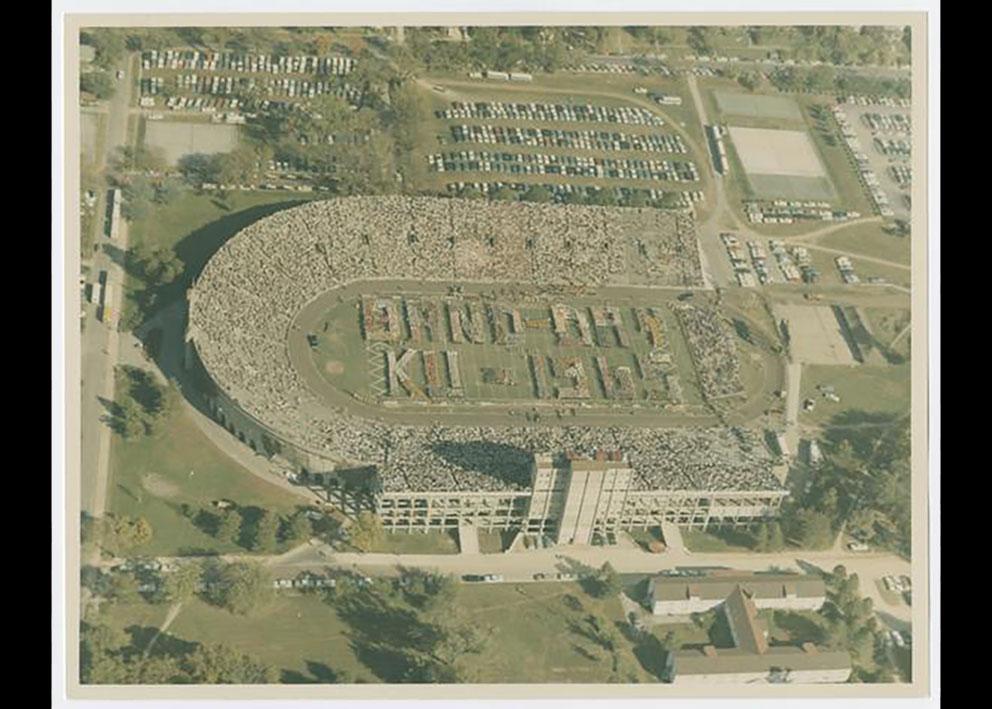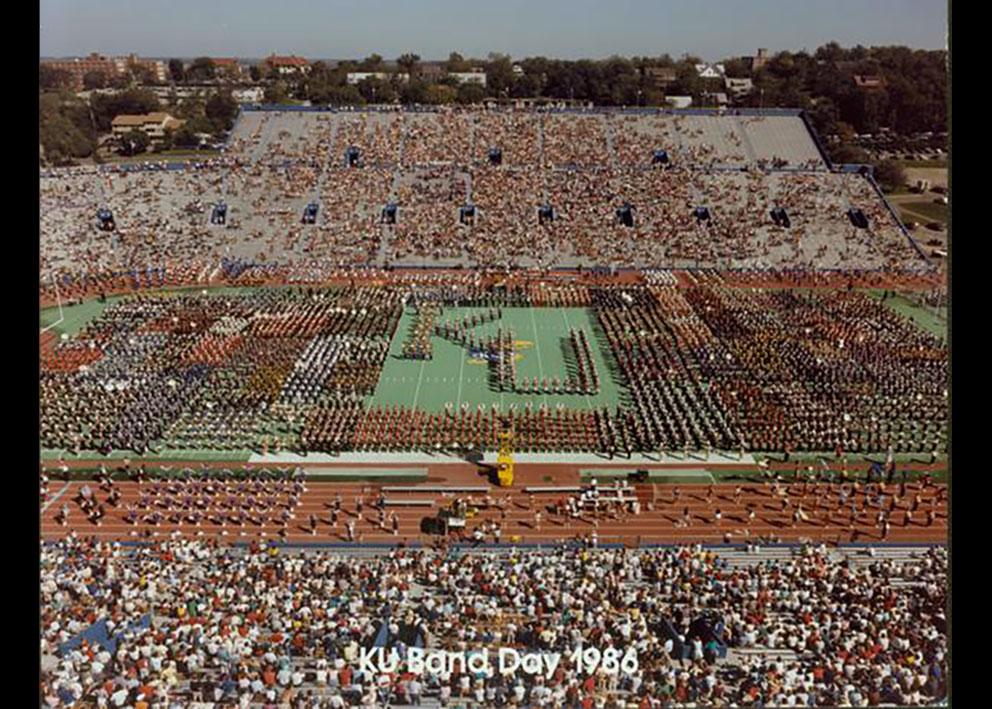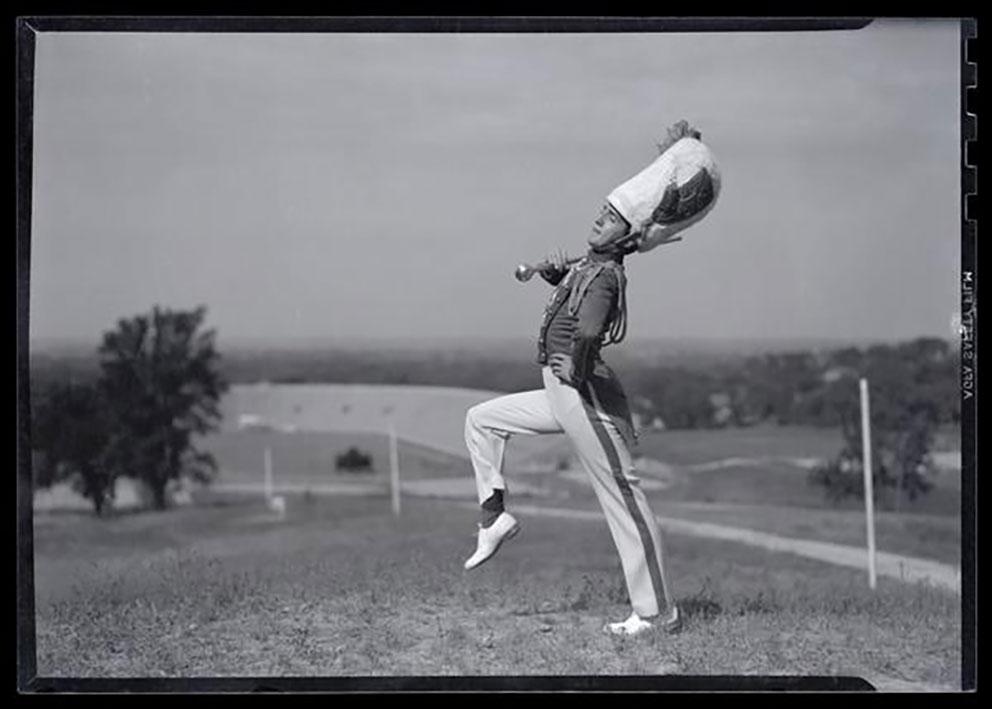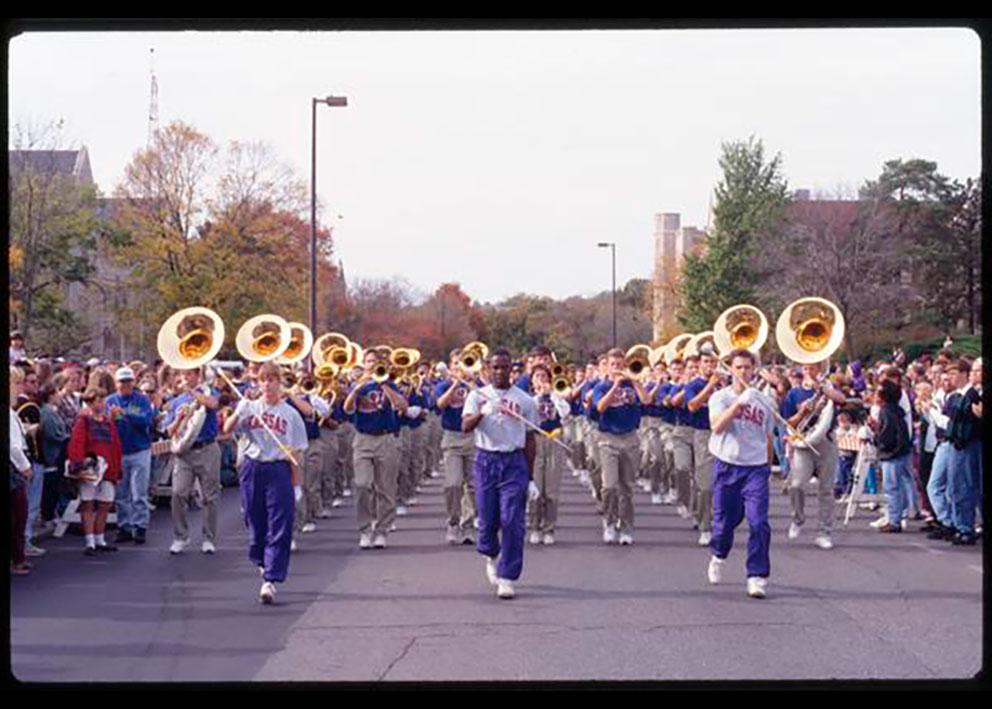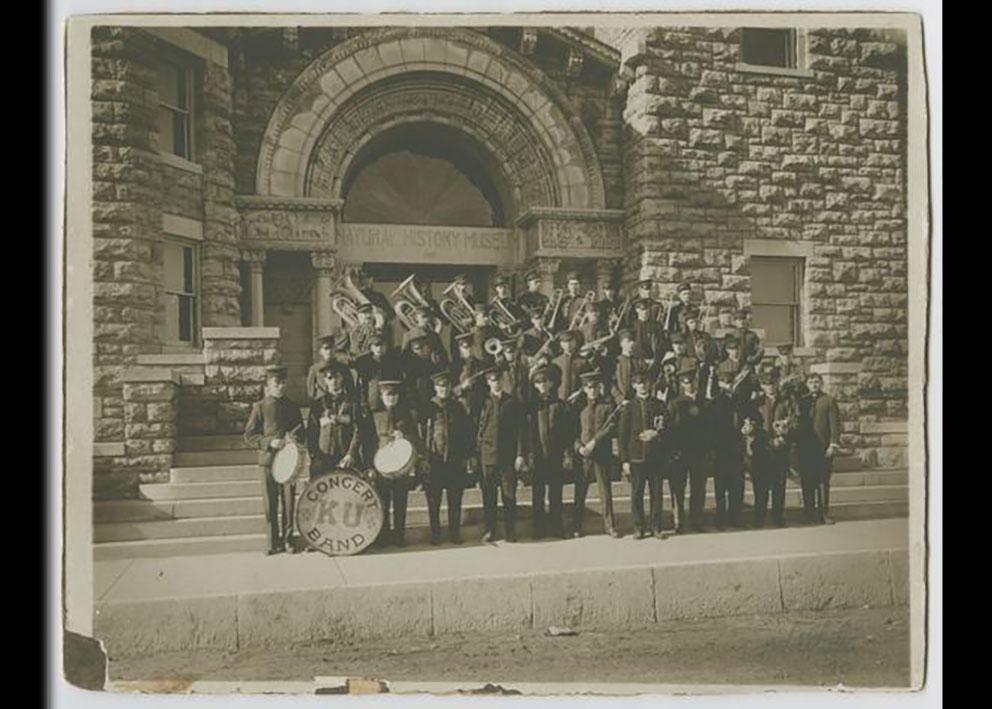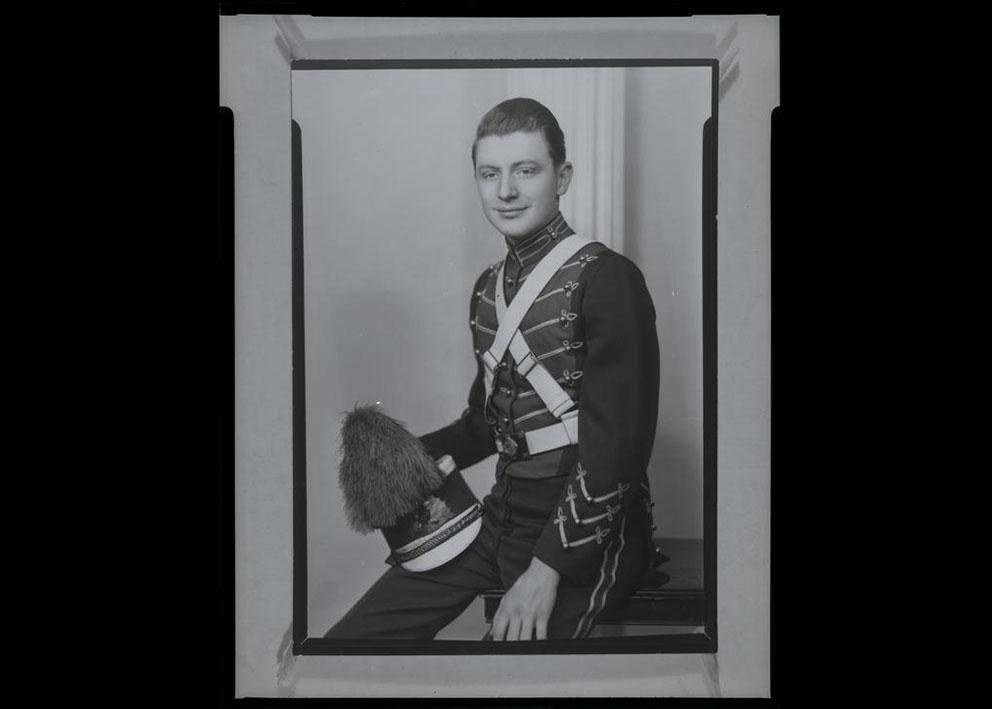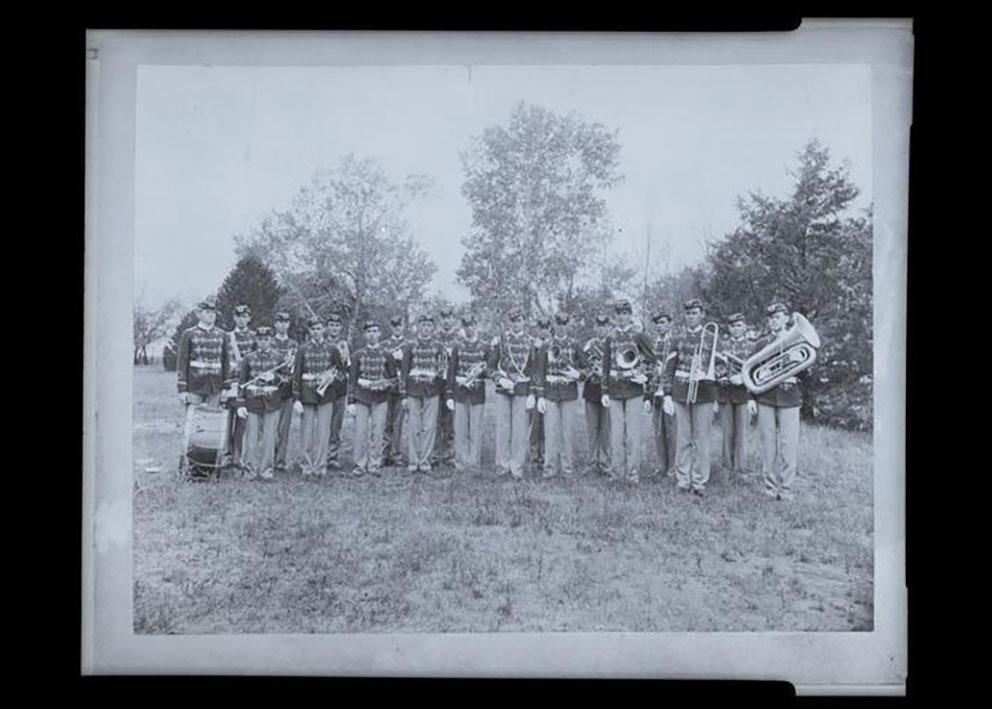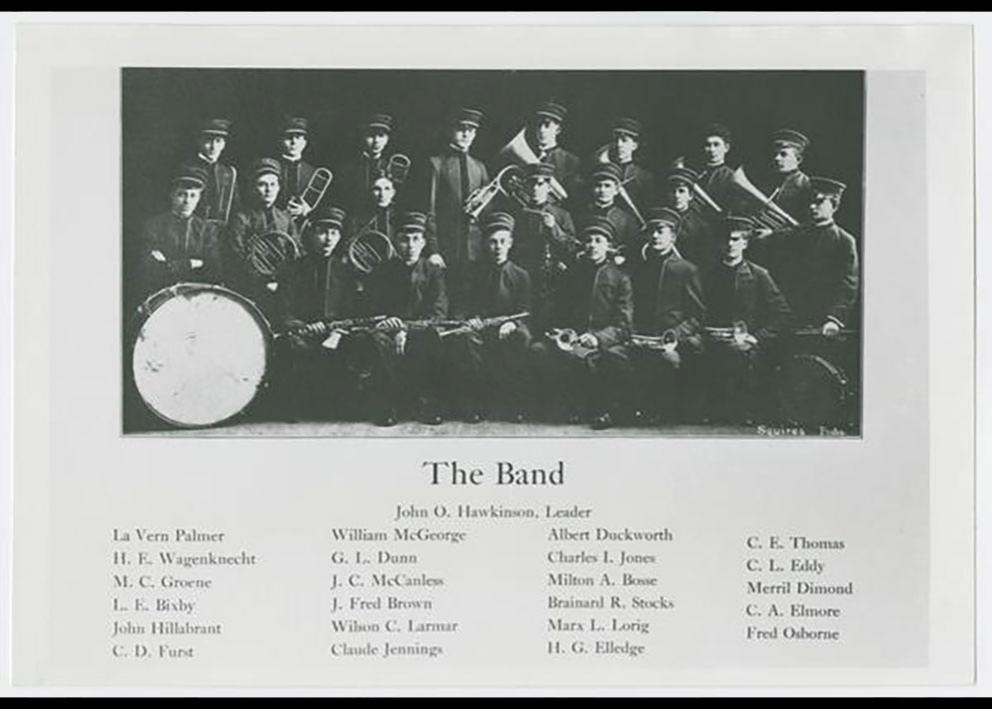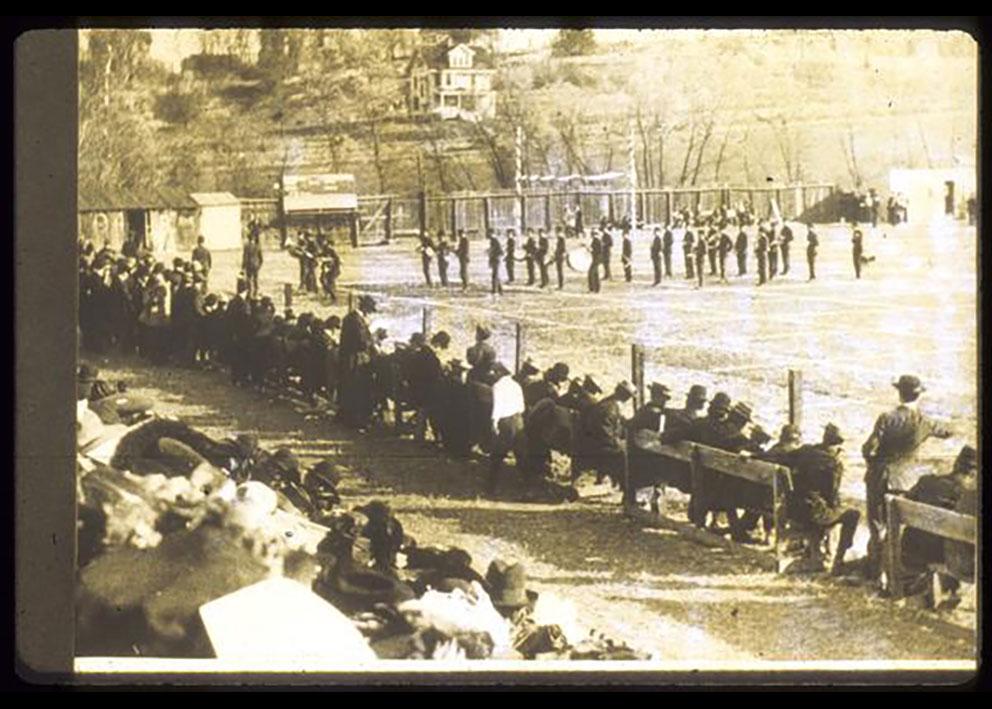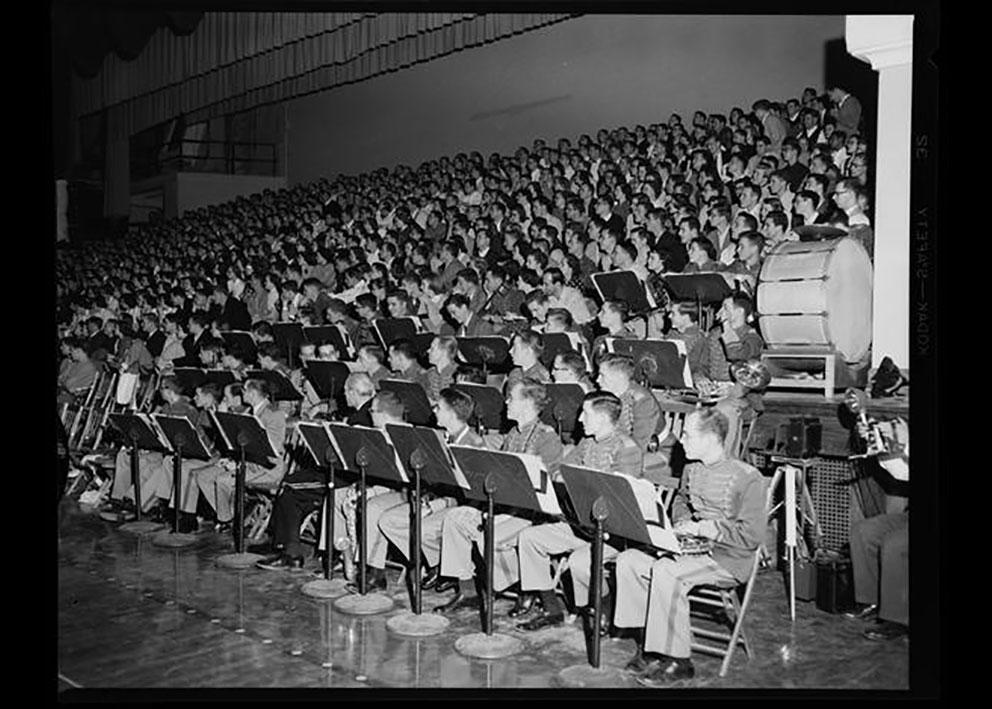Alumni Band & KU Band History
2025 KU Band Homecoming
The 2025 Homecoming football game versus Oklahoma State is Saturday, November 1 at David Booth Kansas Memorial Stadium.
Alumni and friends are welcome to attend an open rehearsal on Friday, October 31, at Riedel Family Field, located at 23rd & Crestline in Lawrence. Refreshments will be available.
Only the first 200 registered and paid performing alumni will receive entrance credentials; other guests must purchase a ticket. Transportation and parking are the responsibility of registered performing alumni.
A schedule for November 1 will be emailed to registered alumni after the game's kickoff time is announced (typically the week before the game). As in year's past, plan for the day to include check-in, refreshments, a required morning rehearsal, lots of music and reminiscing!
This year's fee of $50 includes lunch and a t-shirt with proceeds supporting Alumni scholarships and activities.
The 200 person participation limit has been reached.
Instruments
Only a limited number of the instruments are available to borrow.
All other instruments, accessories and supplies are the responsibility of the performing alumni. Performing alumni borrowing an instrument should also bring all accessories and supplies, including lyres, mouthpieces, oils and grease.
Due to security requirements, staff cannot accept instrument check-ins until after the game at the truck. Performing alumni who borrow an instrument should plan to stay through the end of the game.
Music
A link to music for this year's Homecoming will be sent to the email address you provide. No hard copies will be available.
History of KU Bands
The University of Kansas opened in 1866 with 55 students, with its first known band starting in 1878 when a student, Stuart O. Henry, organized a small 12-piece band to support the university military company. Unfortunately, this group did not receive much assistance from the University and did not survive the summer. There were further attempts to start a university band in the following years but not until a student named Curtis Osborne organized a group in 1898, could KU say they had a band program. It is from that band that today’s KU Bands descend. A succession of many students followed Osborn as leader until, in 1910, Joseph C. McCanles was hired as the KU Bands first faculty director. He served until 1934 when Russell L. Wiley assumed leadership of the band. Under Wiley’s leadership, the band flourished and, in 1936, he founded the Midwestern Music Camp, a camp that continues as an annual summer tradition of educating young musicians from all over America. MMC is now the second oldest music camp in the United States.
Wiley retired as director of bands in 1968 in order to direct Camp full time. He was succeeded by Kenneth G. Bloomquist who held the position of Director of Bands for only two years. George Boberg served as interim director from 1970 - 1971 until Robert E. Foster was appointed Director of Bands fall of 1971. During Foster's 31-year tenure, the KU Band continued to grow and prosper. The many traditions of the KU Bands were established during Foster’s tenure; the Marching Jayhawks marched down Campanile Hill to Memorial Stadium for the first time in the fall of 1971, an important pre-game tradition to this day. The Kansas state song, Home on the Range, was first performed in 1971, and became a permanent part of the band's repertoire. Women became a regular part of the marching band in the fall of 1972. In 1989, the Marching Jayhawks became only the seventh band ever to be awarded the Sudler Trophy, the highest honor available to college marching bands. In 1994, it was named as one of the top ten college marching bands by Sports Illustrated. In the spring of 1996, Foster organized a trip to Japan with the Marching Jayhawks where the band participated in a weeklong marching band festival held at the theme park Huis ten Bosch, in Nagasaki, Japan.
With the bands at KU growing in size and stature, another faculty member was hired. Tom Stidham came to KU with experiences as the Director of Bands at Georgia Southern College and as Assistant Director of Bands at Baylor University in 1975. Shortly after Stidham’s arrival, James Barnes also joined the staff with a unique knowledge of KU as he received both a BM and MM in composition from KU. He served as assistant director of bands until 2000 when he stepped down to join the music theory and composition department at KU. Tom Stidham retired in 2012 after 37 years of service to KU Bands and KU found his replacement in KU Band alumna, Sharon L. Toulouse. Professor Toulouse, the first woman to helm a band at KU, was named a KU Women of Distiction in 2016 for her leadership on campus.
With Barnes’ departure from the band department, Dr. Tim Oliver led the Marching Jayhawks and athletic bands for three years before leaving to lead the marching band at Temple University. Jim Hudson replaced him in 2003 for three years before leaving for Arizona State University. David Clemmer replaced him in 2006-2011. The current Director of the Marching Jayhawks, Dr. Matthew O. Smith, arrived at KU in 2011. Today the Marching Jayhawks number 300 and are a vital part of our campus community and game day traditions.
The Symphonic Band (now called the Wind Ensemble) appeared at the Music Educators National Association convention in Colorado Springs in 1979, and in subsequent years at conventions in Miami, Indianapolis, Chicago, and Kansas City. The Symphonic Band has also performed at the prestigious American Bandmasters Association convention in Kansas City in 1983, in Oklahoma City in 1985, in Lawrence in 1995, and in Wichita in 2002. The band has also been selected to perform at three conventions of the College Band Directors National Association.
The KU jazz program began when Foster started the first jazz ensemble in the music education department in the spring of 1972. He held that position until 1976 when he handed over the reins to Jim Barnes. In 1983, KU hired Ron McCurdy, a graduate of KU who was already instrumental to KU's burgeoning jazz program, as its first director of jazz studies. KU Jazz has become one of the most outstanding jazz programs in the country. In 1990, KU hired the current director of Jazz Studies, Dan Gailey, who continues to grow the jazz program. The ensembles have won 22 Down Beat Student Music Awards as well as Jazz Ensemble I receiving the title of “Best College Big Band” in North America in 1997 and "best graduate college large jazz ensemble" in 2019.
University of Kansas Band Directors
- 1907-1933 Joseph C. McCanles
- 1933-1968 Russell L. Wiley
- 1968-1970 Kenneth G. Bloomquist
- 1970-1971 George Boberg
- 1971-2002 Robert E. Foster
- 2002-2007 John P. Lynch
- 2007-2010 Scott A. Weiss
- 2010-2024 Paul W. Popiel
- 2024- Matt Smith
In 2012, the KU Alumni Association and the student-led Homecoming Steering Committee named the KU Alumni Band as the recipient of the 2012 Rich and Judy Billings Spirit of 1912 Award. This annual award recognizes special contributions to KU's Homecoming celebration, a 100-year tradition. The KU Alumni Band was chosen in gratitude for its yearly performance during homecoming and its long-standing involvement with the tradition. The inaugural year of the KU Alumni Band was 1974 when Robert E Foster brought alumni back to celebrate the retiremenet of former Director of Bands, Russell Wiley.
An end of an era came in 2002 when Foster stepped down as Director of Bands, becoming Assistant Chair of the Department of Music and Dance. Dr. John P. Lynch replaced him as Director of Bands and served in that position until 2007. During his tenure, Dr. Lynch increased the stature of the KU Bands by beginning programs such as the KU Commissioning Project, The Conductor’s Art Symposium, and the Prairie Winds Festival, as well establishing the flourishing relationship with the Naxos recording label. Following Lynch, Dr. Scott A. Weiss came to KU as the Director of Bands and served for three years, and was followed by the current Director of Bands, Dr. Paul W. Popiel in the year 2010.
In recent years, the KU Bands have continued to build on their storied reputation with performances at the MENC National Convention in Minneapolis and a concert tour of China in 2004, Carnegie Hall in 2013, Kansas Music Educators Association in 2012, 2014, 2015, and 2018. and the Kennedy Center in 2018. Subsequent commercial CDs include Wild Nights, 2009, Derivations, 2011, Landscapes, 2013, In the Shadow of No Towers, 2013, Michael Torke Concerto for Orchestra, 2016, Of Shadow and Light, 2017, and Freedom From Fear, in 2020.
There are over 400 students involved in various programs in the KU Bands. They represent the University in over 125 performances every school year beginning with Hawk Week before the first classes have met, and concluding with commencement, marking the end of the academic year.
